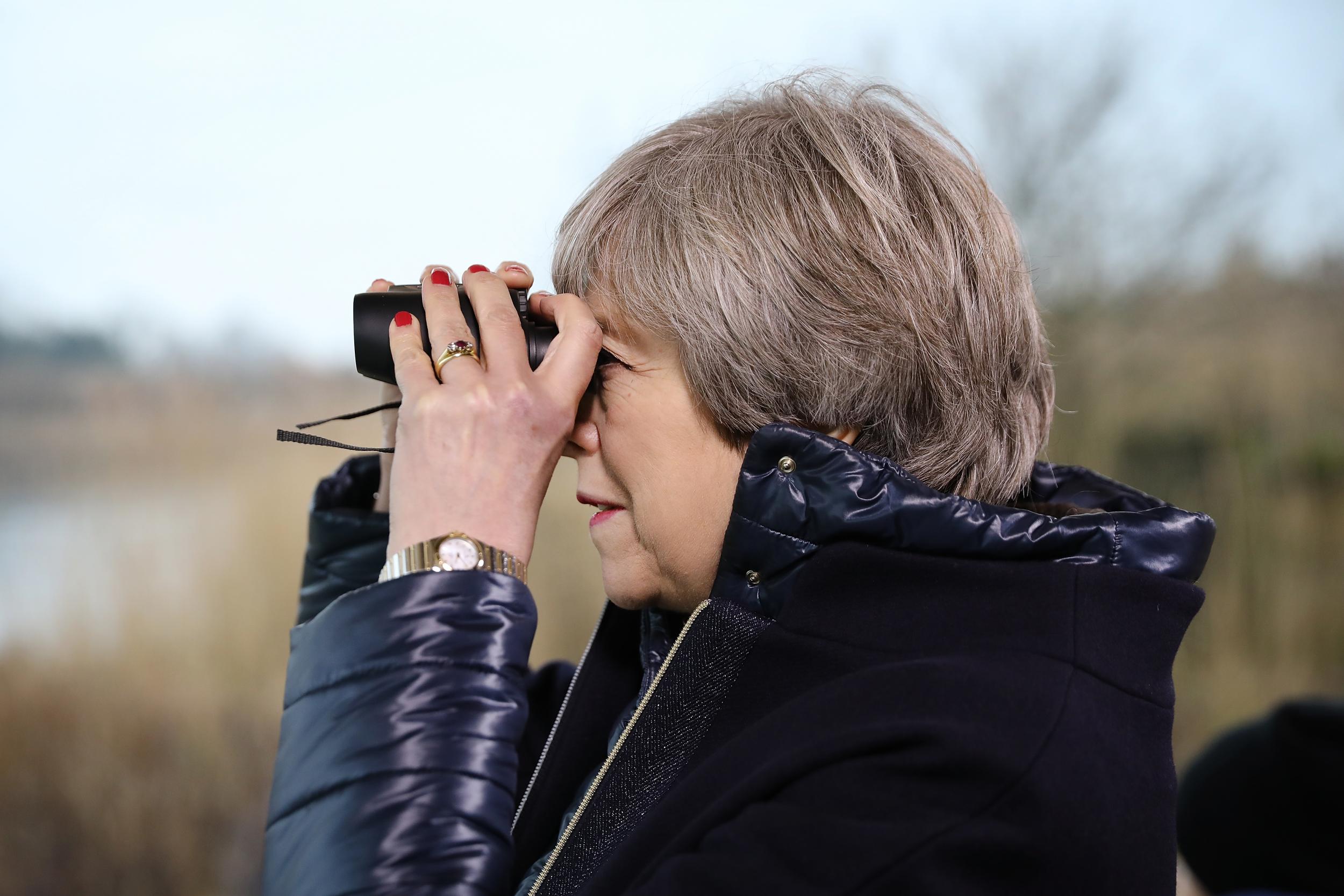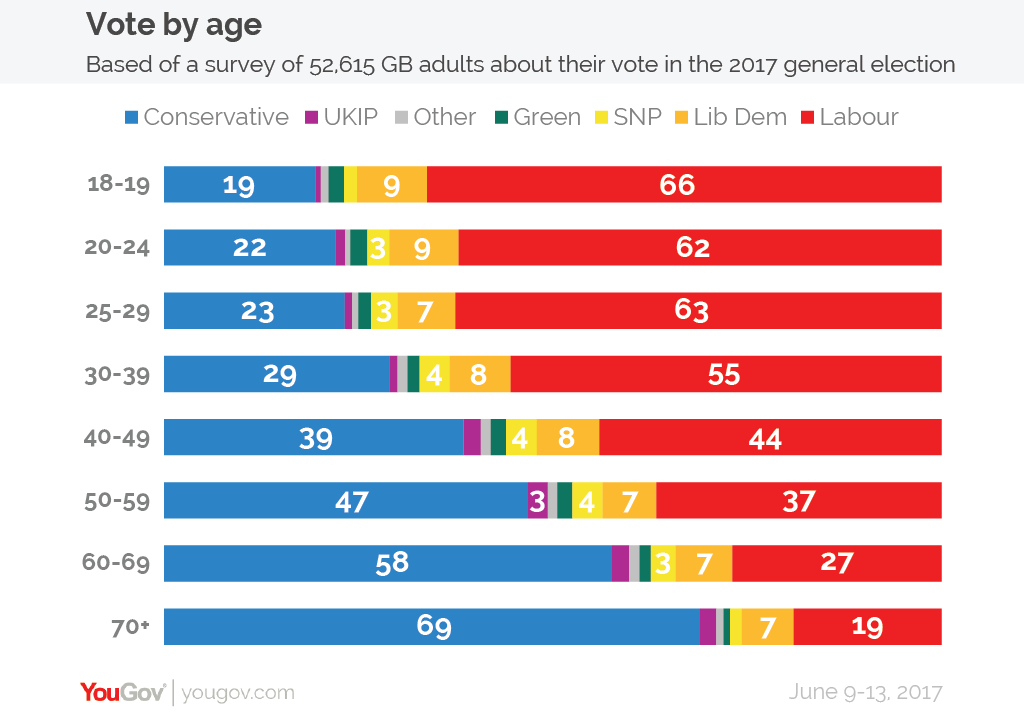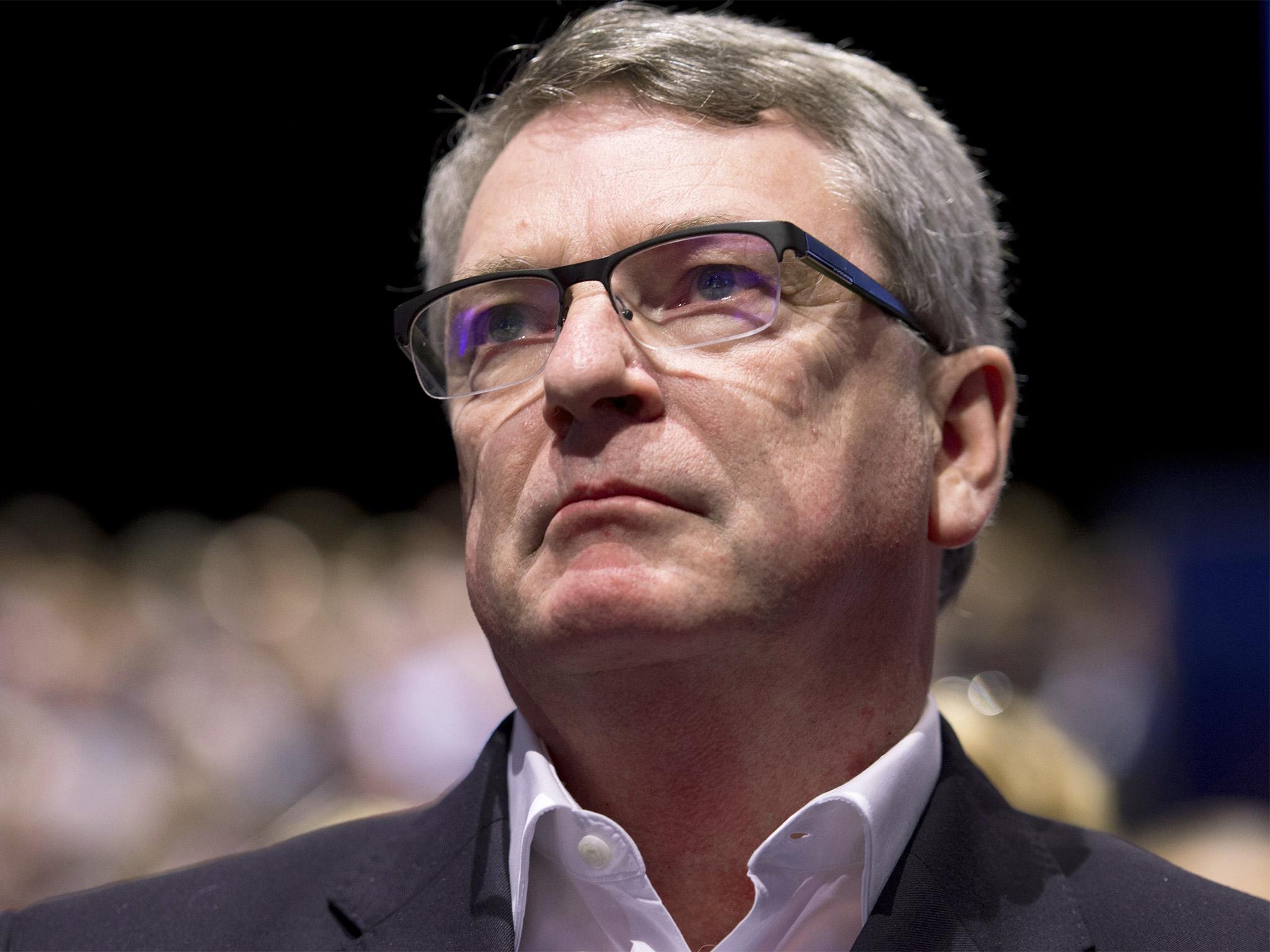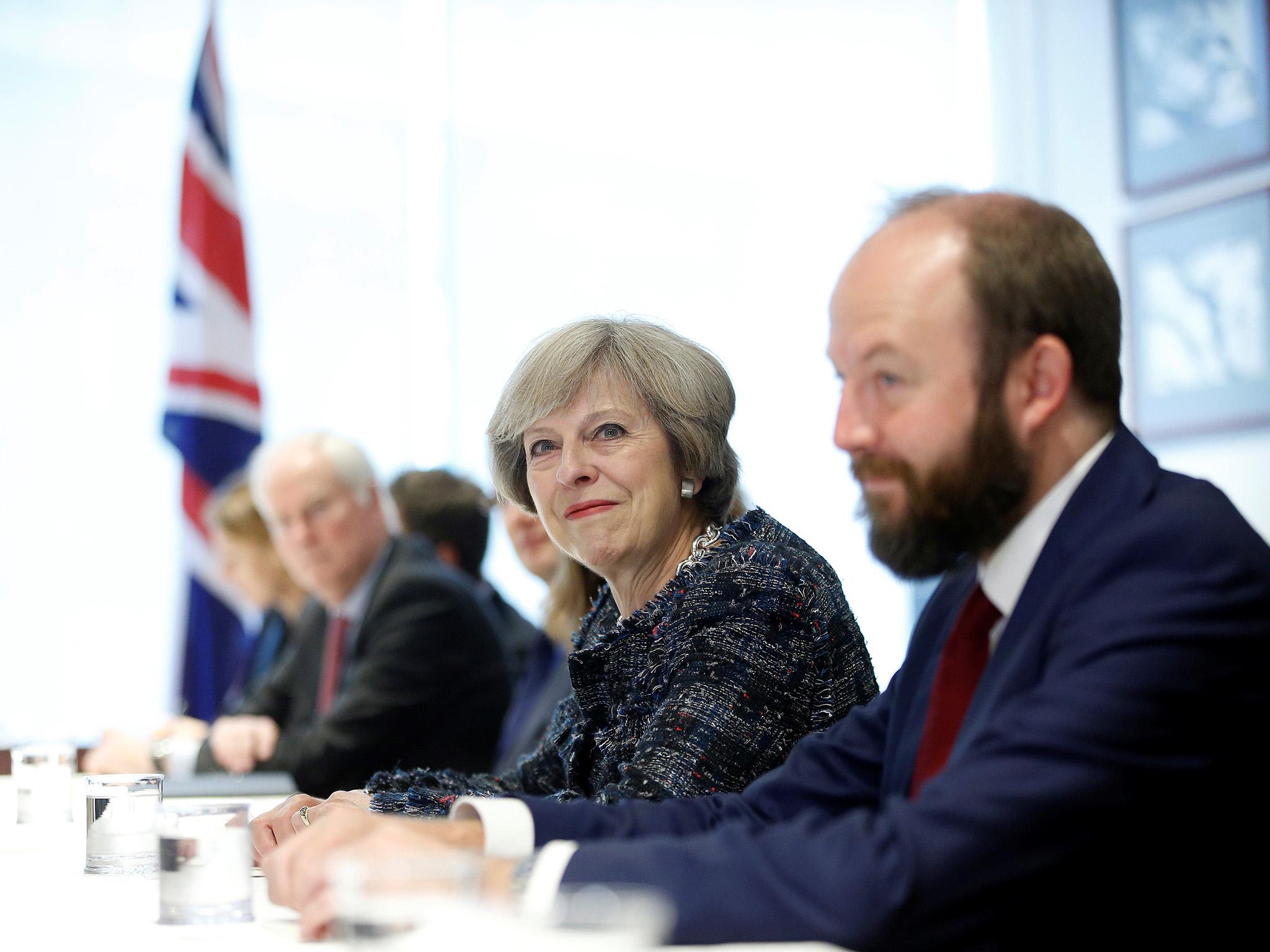Bright Blue: A small liberal Tory think tank has helped cement Theresa May’s new love for the environment
A string of the Government’s new policies can be traced back to the Southwark-based group

Your support helps us to tell the story
From reproductive rights to climate change to Big Tech, The Independent is on the ground when the story is developing. Whether it's investigating the financials of Elon Musk's pro-Trump PAC or producing our latest documentary, 'The A Word', which shines a light on the American women fighting for reproductive rights, we know how important it is to parse out the facts from the messaging.
At such a critical moment in US history, we need reporters on the ground. Your donation allows us to keep sending journalists to speak to both sides of the story.
The Independent is trusted by Americans across the entire political spectrum. And unlike many other quality news outlets, we choose not to lock Americans out of our reporting and analysis with paywalls. We believe quality journalism should be available to everyone, paid for by those who can afford it.
Your support makes all the difference.Theresa May’s sudden embrace of environmental policy is one of the most interesting and untold stories of the last few months.
At least one chapter was not written behind the grand facade of CCHQ or the black-polished Downing Street door, but in a brown-brick office in Southwark.
It is there that a small think tank called Bright Blue has been harping on about how Conservatives need to go green since it was born in 2010.
Other Tories had been arguing the case for longer, but Bright Blue went a step further in 2017 and helped show why high-profile environment policy is a matter of political survival.
Young voters had just flocked to Jeremy Corbyn at the election, with every age group under 50 backing Labour.
In September the think tank published a poll showing the environment was among top concerns for younger voters, the very top one for the youngest, but that most believed the Tories were “weak” on the issue.
One minister told The Independent: “The environmental thinking has always been there, but before now it wouldn’t get the best announcement slots.
“Since the election things have changed. The PM has realised that it’s more important and that it gives a more balanced perspective to the Government.
“That’s created the space for groups like Bright Blue to come forward, be involved and help shape the ideas.”
Theresa May has since delivered the first major speech on the environment of a sitting PM since 2004 and has revived a long-awaited 25-year green plan, including the abolition of plastic waste, albeit by 2042.
That is before you even mention a slew of policies from the newly invigorated Department for the Environment, whose cabinet minister Michael Gove has been credited by Tory peers with delivering breakthrough announcements.
One source close to Gove said Bright Blue’s influence should not be overstated, but admits the Environment Secretary has read some of its papers.
It could just be coincidence that in a key speech Gove gave in Oxford in January, he announced a policy relating to the reform of farm subsidies after Brexit, which was touted in the think tank’s November 2017 paper, A Greener More Pleasant Land.
Earlier, in April 2017, the group also published its Green Conservatives report setting out evidence and polling data showing Tory voters wanted a “green Brexit”.
In January the Government also fleshed out its plans to phase out coal by 2025, although this dates back to a November 2015 initial announcement from then environment secretary Amber Rudd.
The PM has realised that it’s more important and that it gives a more balanced perspective to the Government
Four months earlier, in July 2015, Bright Blue had said in its report, Green and Responsible Conservatism: “We need to quickly close down the infrastructure that causes environmental problems in the first place.
“By far the quickest way of doing this is closing down our nine remaining coal-fired power stations.”
In November 2017 the Government also launched the “Powering Past Coal Alliance”, to work with other countries to end coal burning, another long-called for Bright Blue initiative.
But once you start looking, it’s not just the the environment where Bright Blue is apparently scoring Tory policy hits.
The group had been calling for the Government to cut stamp duty for all first time buyers before Philip Hammond announced he would do so in the Budget.
It had also been demanding a reduction in the initial seven-day wait before people become eligible to claim Universal Credit, also announced by the Chancellor.
At the start of Conservative conference last year, May announced she would increase the earnings threshold at which students start repaying loans to £25,000, under pressure from Corbyn’s plan to abolish fees altogether.

The policy had also been promoted by Ryan Shorthouse, Bright Blue’s founder, who used to work for former Conservative universities minister David Willetts.
He told The Independent that the party has become aware that it was exposed at the election in terms of young voters.
“To get them you do have to have a focus on social justice, but also on social liberalism,” he said.
“Before the 2017 election there was a kind of abandonment of that social liberalism, and that was linked to how we attracted younger voters.”

He also highlights the growing division between young and old, with Tory policy previously focussing more on older voters, who were more likely to turn out.
Shorthouse went on: “For a long time in policy circles on the centre-right there has been a feeling that there has been an inequality there for younger voters, who feel they do not have the same opportunities as their parents did.
It’s only since the election, when young people did turn on May, that it has really sunk in
“But it’s only since the election, when young people did turn on May, that it has really sunk in. That’s why some of the policies that we have been promoting have suddenly become more attractive to the Government.”
One of the rising stars from the 2017 election, Bim Afolami MP, first met Shorthouse through the Bow Group, a think tank that has veered further to the right in recent years.
He said: “Ryan is a talented guy. I got to know him in the Bow Group, in the days when the Bow Group was still sane.

“He’s a great policy guy, but what I underestimated at that time was his ability to make something out of nothing – he saw that there was a space that the Bow Group vacated.
“In the days when Michael Heseltine and Norman Lamont were there it used to occupy a modernising young space, but when it stopped doing that, Ryan took that space and filled it with something more dynamic, made it better.”
Afolami said Bright Blue had come through a difficult time, especially when David Cameron’s election guru Linton Crosby began scraping policy “barnacles” from the Tory message, including some of the more “Big Society” parts backed by the group.
Brexit and May’s early drive to focus on blue collar, working-class issues to the exclusion of all else also shut them out – but now things are changing, Afolami said.

“Bright Blue has managed to sustain itself thorugh a period when people thought it might not last.
“Policy Exchange was influential during the Cameron years, but now Bright Blue, to a lot of people’s surprise, is playing a bigger role in policy.
“A lot of people haven’t noticed it yet.”
The comparison with Policy Exchange – the engine of Cameronism – is flattery. Bright Blue is not there yet.
But it has broken through and has an opportunity to start promoting liberal polices to a Government no-one thought would listen.
The question now for the group, Afolami said, is whether it will move out of its “comfort zone” and start tackling the meatier economic issues, adding: “Does Bright Blue play a bigger part in that debate? If they don’t then their relevance might drop.”
Join our commenting forum
Join thought-provoking conversations, follow other Independent readers and see their replies
Comments